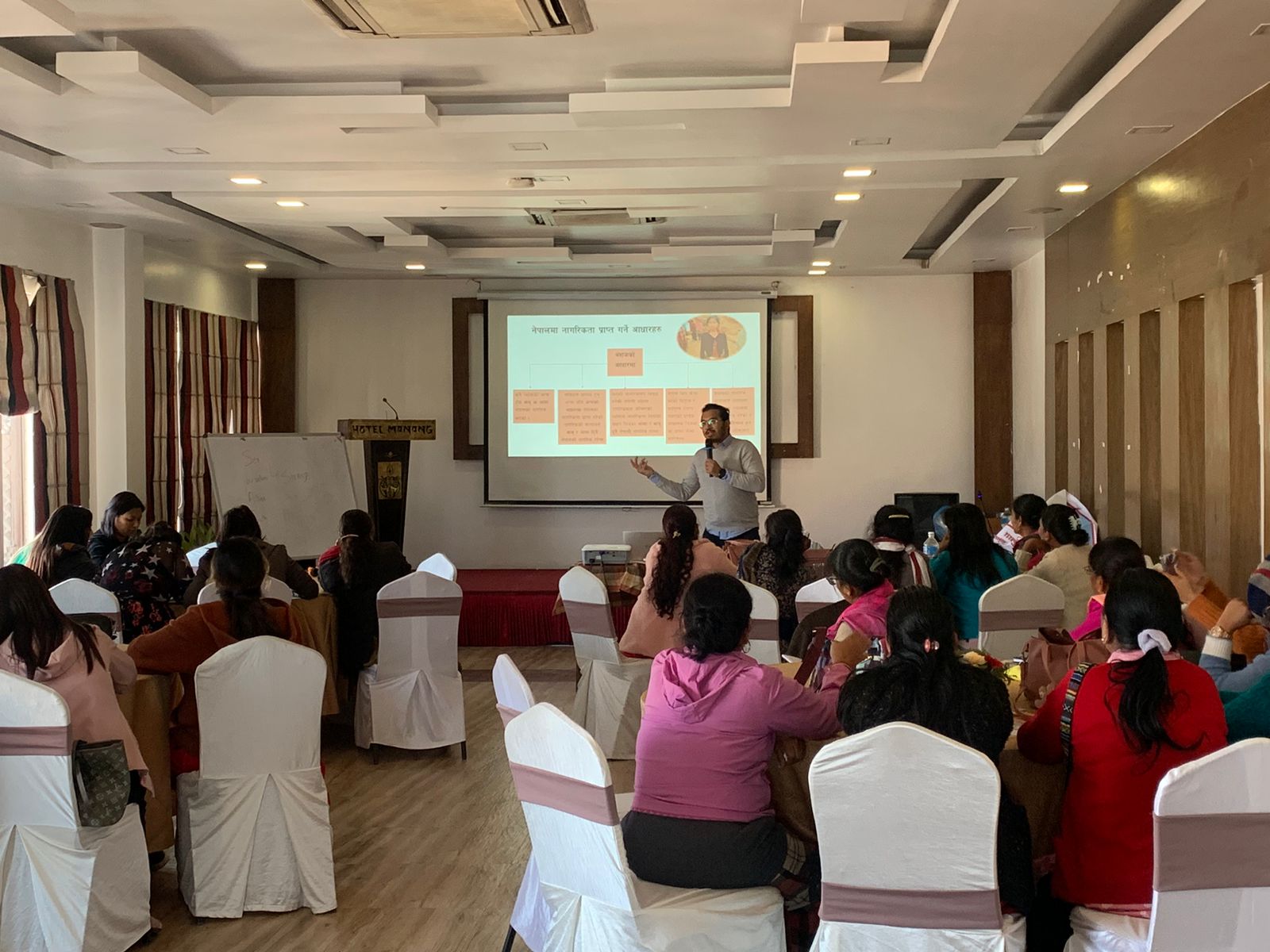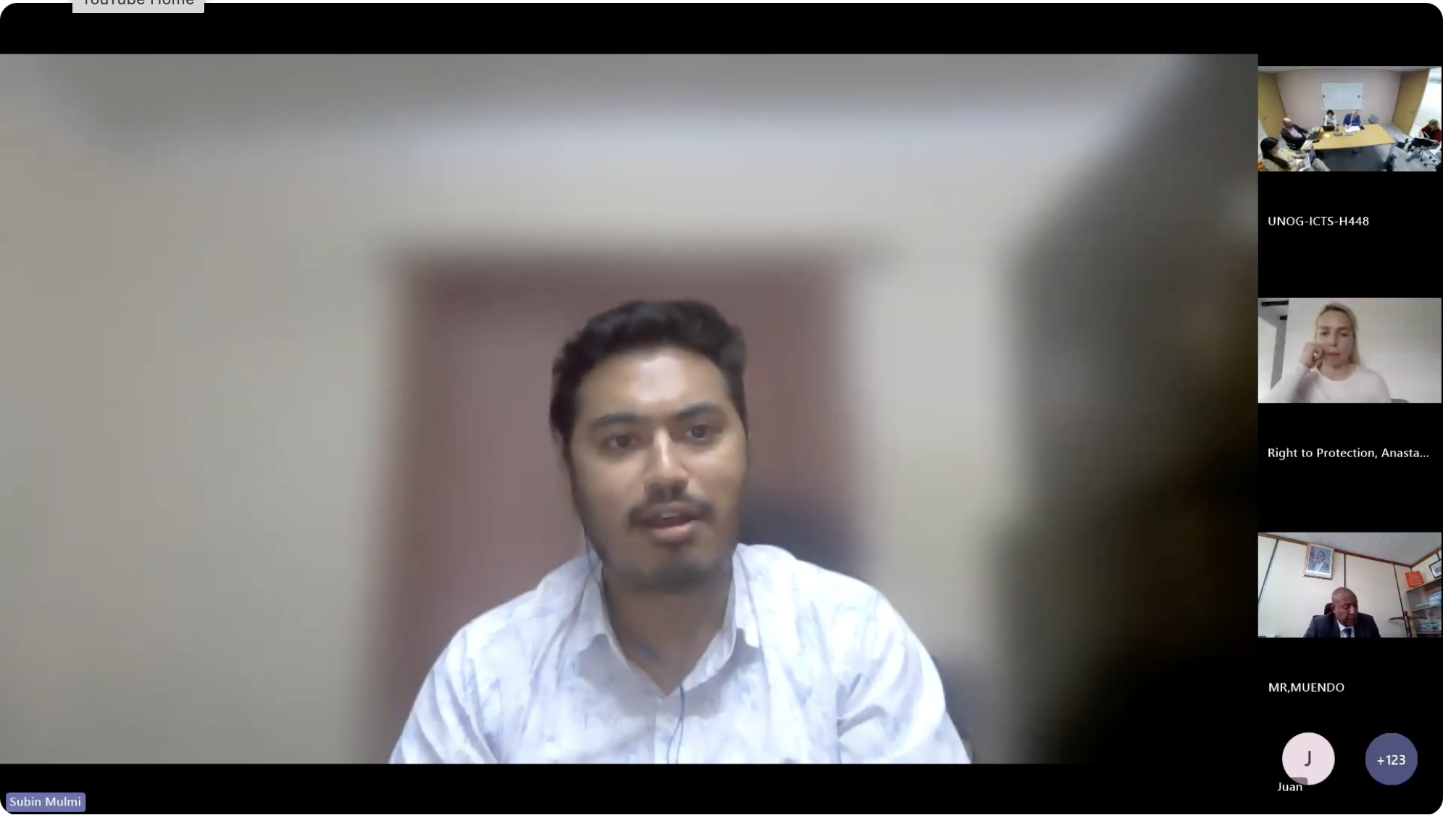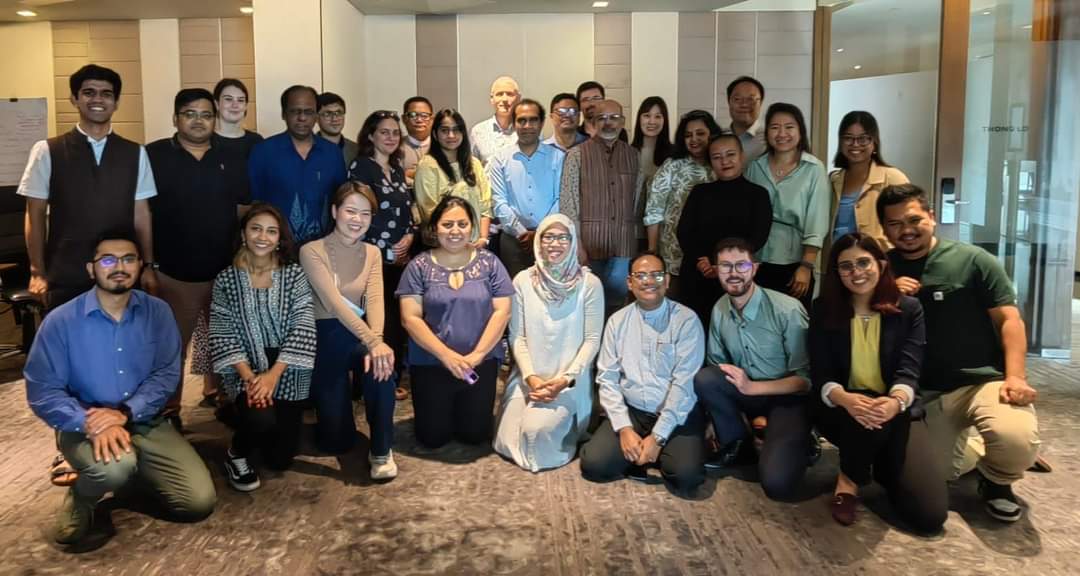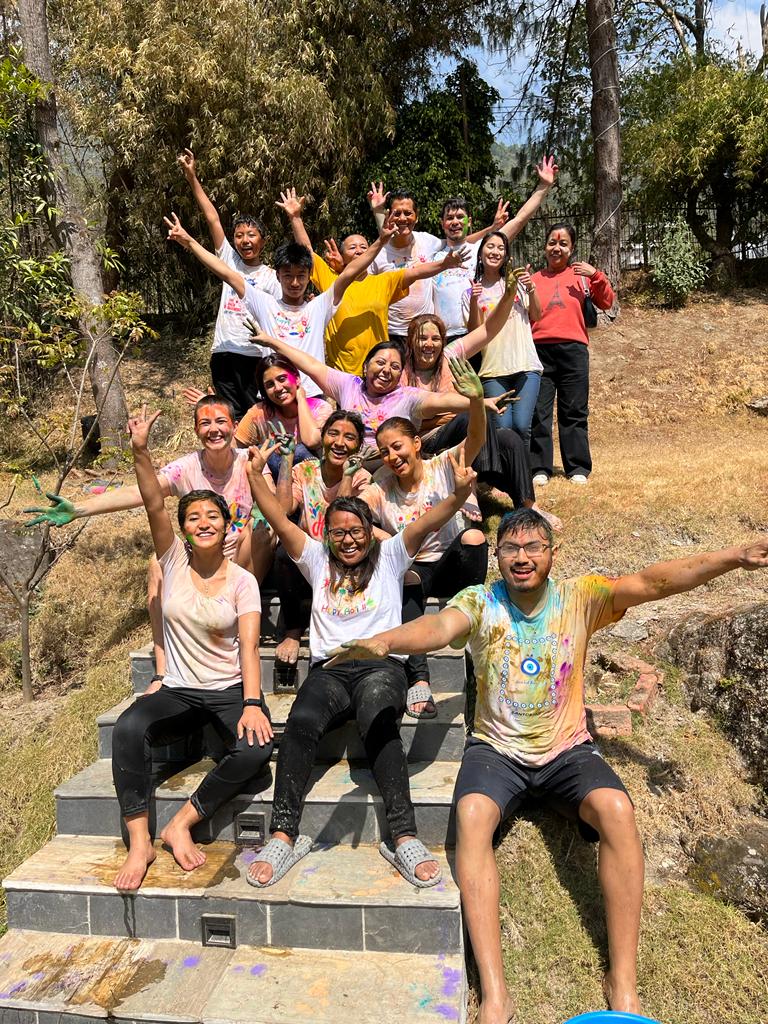🖥️ Online | 6 May 2025
Nationality for All’s Executive Director, Subin Mulmi, was invited to speak at the Expert Workshop on the Right to a Nationality: Equality in Nationality Rights in Law and in Practice, organized by the Office of the United Nations High Commissioner for Human Rights (OHCHR) and the United Nations High Commissioner for Refugees (UNHCR).
Convened pursuant to Human Rights Council Resolution 53/16, the intersessional workshop aimed to promote dialogue on the right to a nationality and its intersection with equality and non-discrimination. The event also sought to identify best practices and policy pathways to ensure equal nationality rights and to prevent and address statelessness.
Exploring Discrimination in Nationality Matters
Subin joined an esteemed panel alongside Dr. Bronwen Manby (University of London), Professor Ivana Krstić (UN Working Group on Discrimination Against Women), and other experts, in the session “An Overview of Discrimination in Nationality Matters”, moderated by Mr. Simon Walker, Chief of the Rule of Law & Democracy Section.
In his presentation, “Discrimination and the Right to Nationality in the Asia Pacific,” Subin highlighted the multiple and intersecting forms of discrimination that continue to drive statelessness across the region. He focused particularly on:
- Gender-based discrimination, where nationality laws deny women the equal right to confer citizenship to their children or spouses, persisting in countries such as Nepal, Brunei, and Kiribati.
- Ethnic and religious exclusion, including the ongoing marginalization of groups such as the Rohingya in Myanmar, the Hill Tribes in Thailand, and ethnic Vietnamese in Cambodia.
- Administrative and procedural barriers that prevent access to documentation, even where legal nationality rights exist in principle.
He emphasized that discrimination “operates both in law and in practice,” and called for inclusive, people-centered reforms that ensure meaningful participation of affected communities in nationality processes.
Global Good Practices and Pathways Forward
The second session of the workshop spotlighted good practices from around the world, including Thailand’s recent citizenship regularization initiative for long-term residents, Egypt’s reforms enabling women to confer nationality to their children, and Kenya’s work on community population registers for historical migrant.
Drawing from NFA’s regional experience, Subin underlined that progress in addressing statelessness must be anchored in equality, gender justice, and inclusive governance, with states ensuring that no one is arbitrarily deprived of nationality on the basis of race, gender, religion, or descent.
Reaffirming the Right to Nationality as a Human Right
The workshop reaffirmed the right to a nationality as a core human right under Article 15 of the Universal Declaration of Human Rights, emphasizing that statelessness is both a cause and consequence of discrimination. Participants from UN agencies, civil society, academia, and impacted communities shared experiences and recommendations, which will contribute to a report to be presented at the 60th session of the Human Rights Council.
In closing, the discussions underscored that achieving equality in nationality rights is essential not only to end statelessness but also to advance dignity, belonging, and justice for all.




